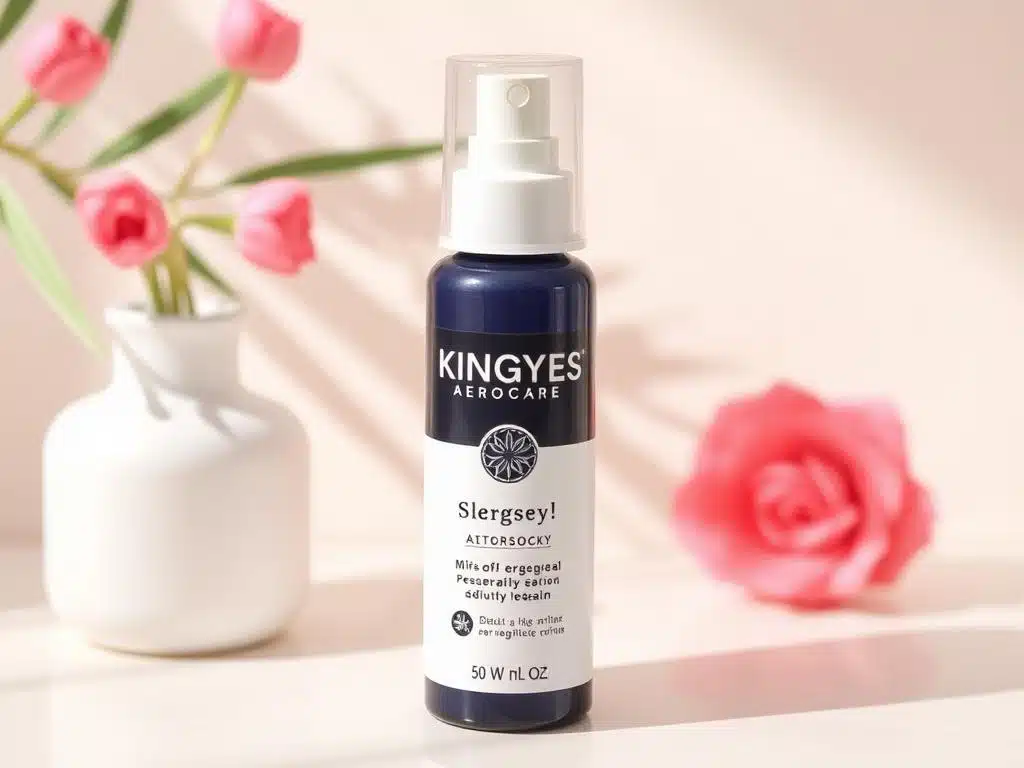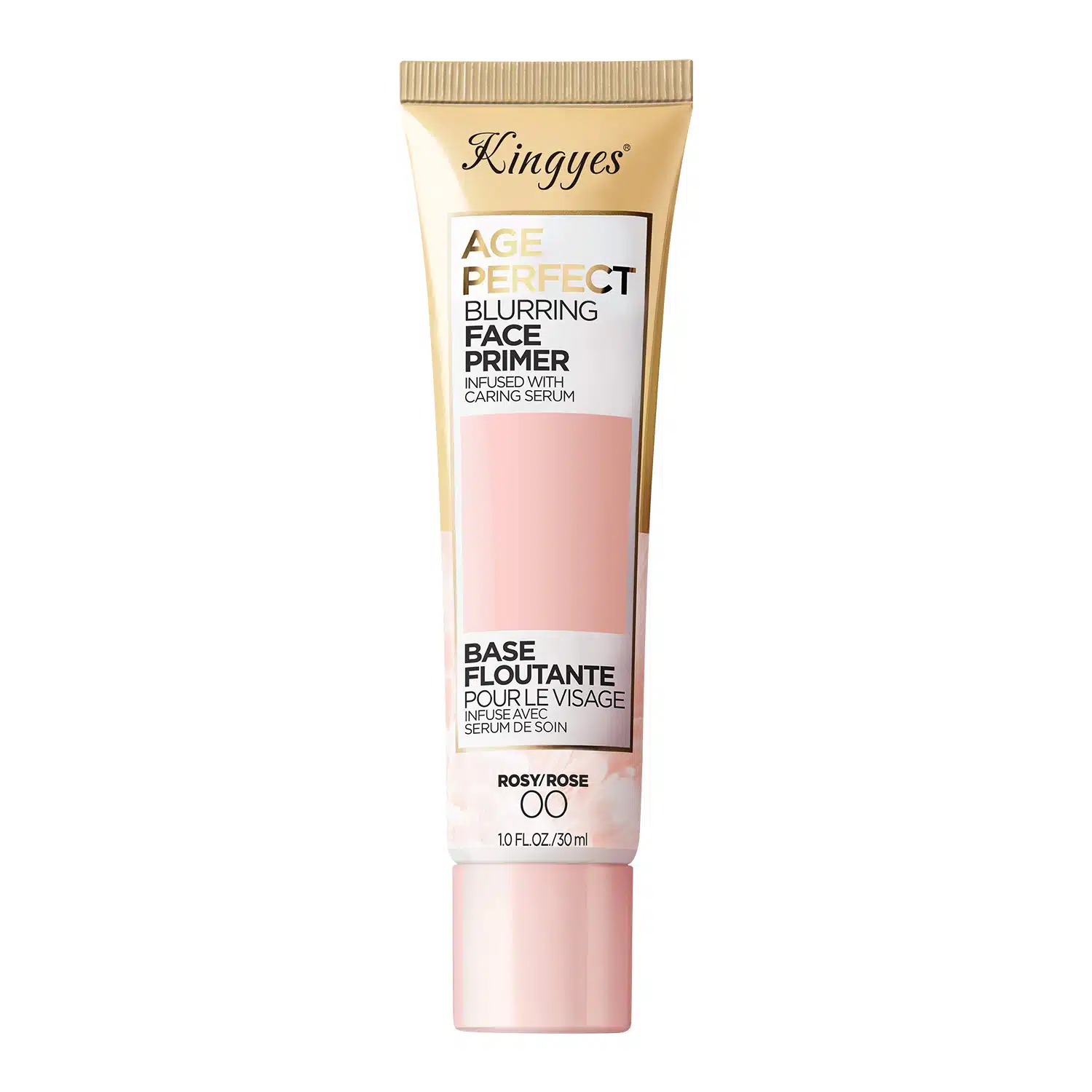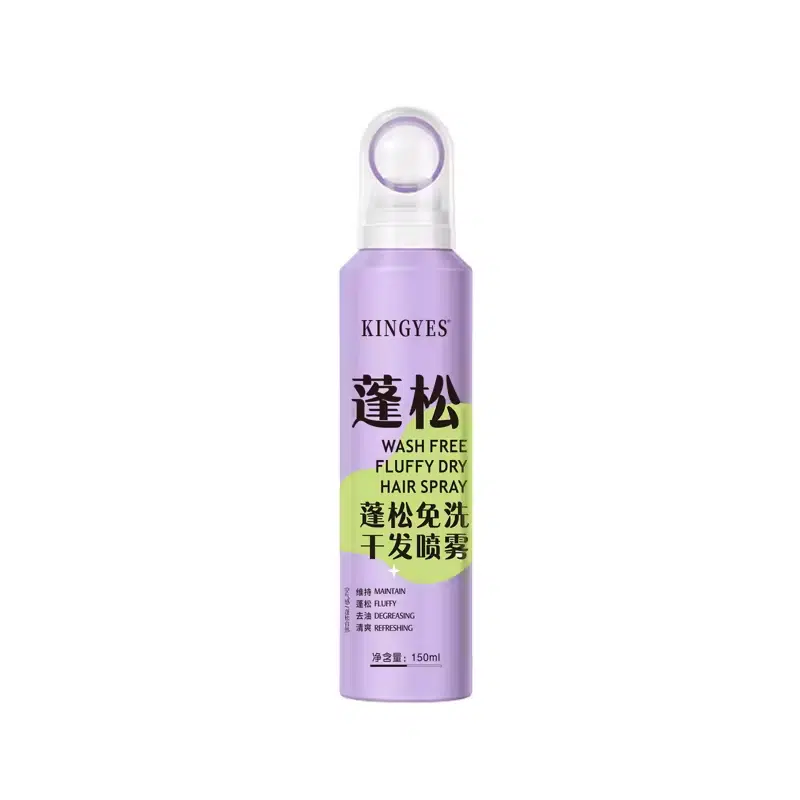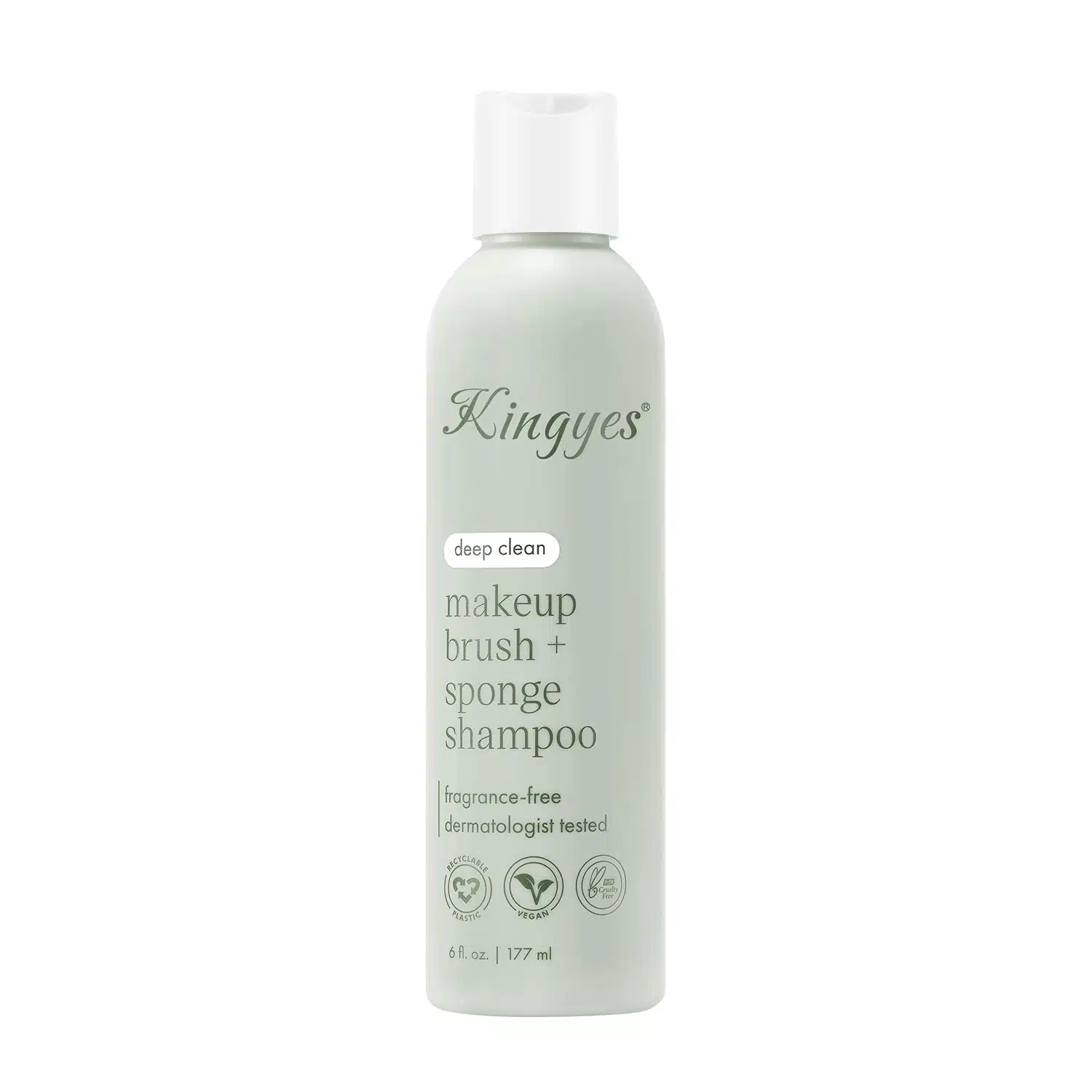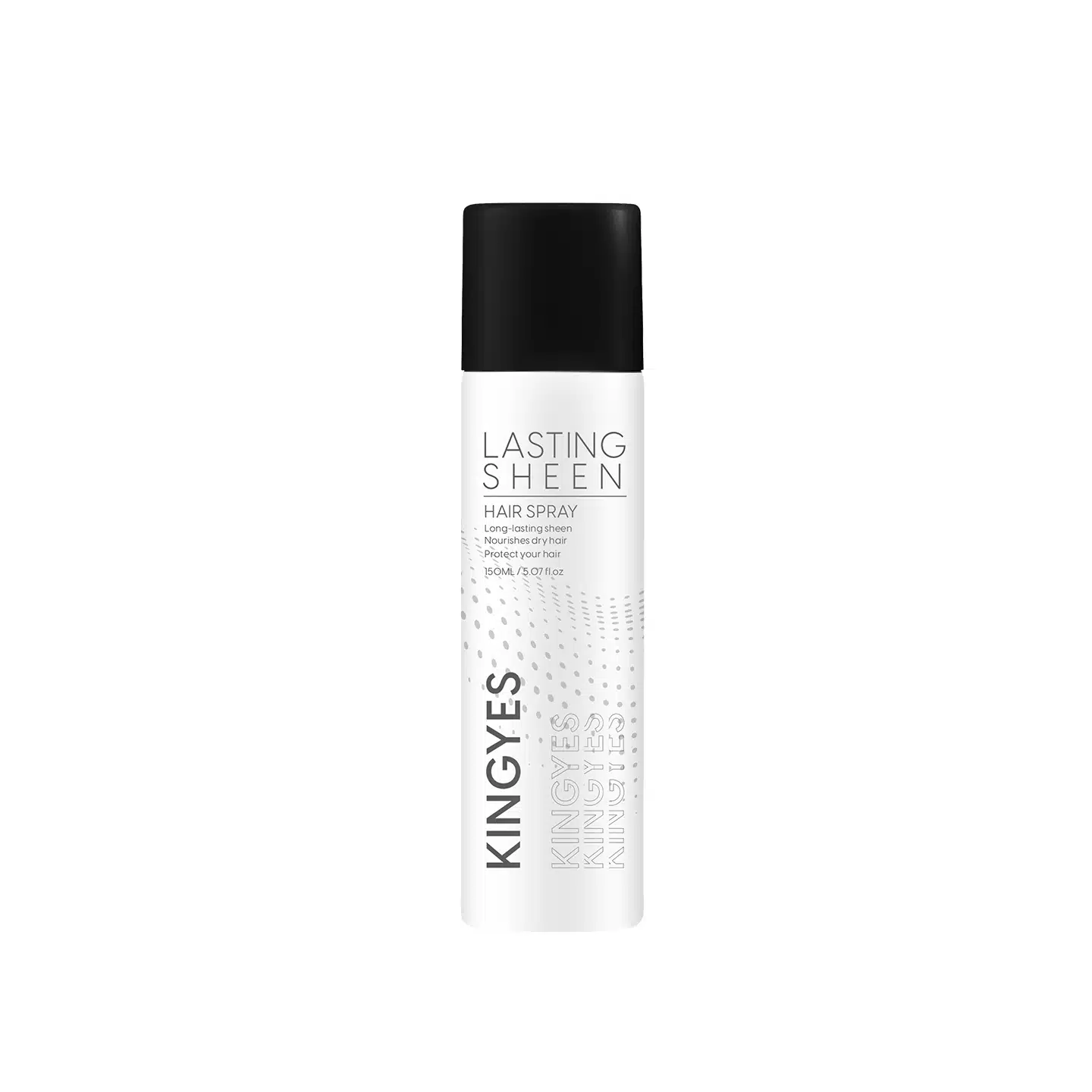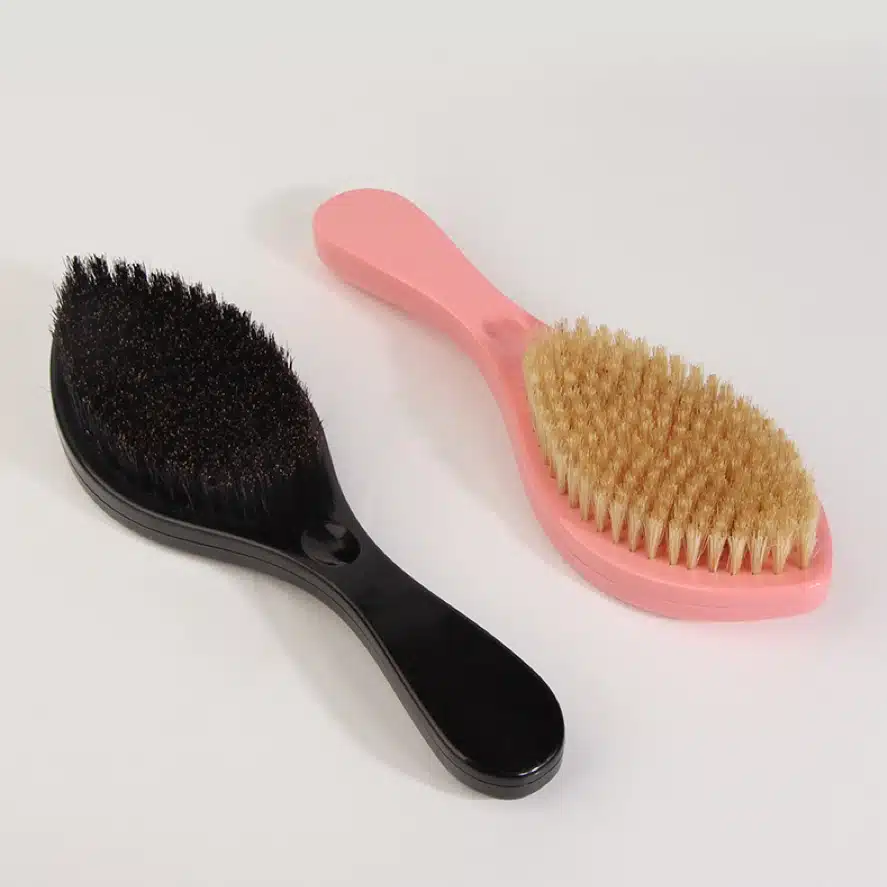
How To Cooperate With Cosmetics Factories?
Table of Contents
Choosing the Right Cosmetic Manufacturer: Your Guide to a Beautiful Partnership in the Beauty Industry
In the dynamic and competitive beauty industry, partnering with the right cosmetic manufacturer is paramount to the success of your cosmetics business. Whether you are a budding private label brand or an established brand owner looking to expand your product lines, the quality and reliability of your cosmetic manufacturing partner can make or break your brand. This comprehensive guide delves into the essential aspects of choosing a cosmetics manufacturer, ensuring product quality, navigating the cosmetic manufacturing process, and building a strong, collaborative relationship for long-term success. Read on to discover how to make informed decisions that will help your cosmetics brand thrive and deliver high-quality products to your customers.
Why Your Cosmetic Manufacturer is Your Business Partner: Beyond Just a Supplier
In the intricate cosmetic industry, your relationship with a cosmetic manufacturer transcends a simple buyer-seller dynamic. They are, in essence, a critical business partner, deeply intertwined with the success and reputation of your cosmetics business. Brand owners who recognize this symbiotic relationship and approach it strategically are far more likely to flourish. Working with cosmetics involves entrusting a significant portion of your product quality and brand image to your chosen manufacturer or supplier.
The cosmetic manufacturer is not merely a processing factory; they are an extension of your brand. They are responsible for translating your vision into tangible cosmetic products, upholding your quality standards, and ensuring that the products are safe for your target market. A strong partnership with a reliable manufacturer allows you to focus on other crucial aspects of your cosmetics business, such as marketing strategies, online store management, and develop new products that meet evolving consumer demands. Therefore, choosing a cosmetic manufacturer should be approached with the same diligence and strategic thinking as selecting a key executive for your own company. The right manufacturing partner can help your business reach new heights, while a poor choice can lead to significant setbacks and damage your brand image on the marketplace.
Understanding the Different Types of Cosmetic Manufacturing: OEM, ODM, and Private Label
Navigating the world of cosmetic manufacturing requires understanding the different operational models manufacturers offer. The three primary models are OEM, ODM, and Private Label, each presenting distinct advantages and considerations for brand owners:
OEM (Original Equipment Manufacturer): In the OEM model, you, as the brand owner, provide the cosmetic product design, product specifications, and formulations to the cosmetic manufacturer. The manufacturer then producing cosmetic products strictly according to your instructions. You retain complete control over the product specifications and intellectual property. OEM is ideal for makeup brands and skincare companies with proprietary formulas and established product lines. However, it typically requires a higher level of involvement and technical expertise from the brand owner.
ODM (Original Design Manufacturer): ODM cosmetic manufacturers offer a more comprehensive service. They not only manufacture cosmetic products but also provide product design, formulation, and packaging development services. You can select from a range of products already designed by the ODM or collaborate with them to customize existing formulations. ODM is a good option for cosmetics businesses looking for faster product lines development and reduced R&D investment. It allows for greater flexibility and can be particularly beneficial for starting a cosmetics business with limited in-house product development capabilities.
Private Label (White Label): Private label manufacturing offers the most streamlined approach. Cosmetic manufacturers offering private label services have pre-formulated and pre-packaged cosmetic products that are ready to be branded with your private label brand. You essentially choose from their existing product lines and market them under your own brand name. Private label cosmetics are a fast and cost-effective way to launch a cosmetics business or expand your product offerings. It’s particularly suitable for businesses focused on branding and marketing strategies rather than product innovation. White label and private label are often used interchangeably in the cosmetic industry.
Choosing the right cosmetics manufacturing model depends heavily on your business needs, resources, and long-term strategic goals. Carefully consider your level of in-house expertise, desired control over product development, budget, and speed-to-market requirements when choosing a cosmetic manufacturer and their operational model.
Finding the Right Cosmetic Manufacturers: Where and How to Source Potential Partners?
Sourceing reliable and reputable cosmetic manufacturers is a critical step in starting a cosmetics business or expanding your existing product lines. The internet and the globalized cosmetic industry offer numerous avenues to look for manufacturers. Here are some effective strategies to source potential manufacturers:
Online Directories and Platforms: Utilize online directories specializing in cosmetic suppliers and cosmetic manufacturing companies. Platforms like Alibaba, ThomasNet, and IndustryNet list numerous cosmetics manufacturers in China and globally, allowing you to search based on product categories, services offered (OEM, ODM, Private Label), and location. These platforms often provide company profiles, certifications, and product lines information.
Trade Shows and Industry Events: Attending cosmetic industry trade shows and exhibitions, such as Cosmoprof, MakeUp in Paris, and in-cosmetics, provides invaluable face-to-face interaction with potential manufacturers. Trade shows allow you to assess product quality firsthand, discuss your specific requirements directly with manufacturers offering various cosmetic care or makeup solutions, and build personal connections. These events are also excellent for staying abreast of the latest trends and innovations in cosmetic manufacturing.
Industry Associations and Referrals: Leverage industry associations related to cosmetics and personal care products. Organizations like the Personal Care Products Council (PCPC) and Cosmetics Europe often have member directories that can lead you to reputable cosmetic manufacturers. Seeking referrals from other brand owners in your network or industry consultants can also provide valuable leads and insights into reliable manufacturers.
Online Research and Due Diligence: Once you have identified potential manufacturers, conduct thorough online research. Examine their websites, read customer reviews and testimonials, and check for any industry recognitions or awards. Pay close attention to their certifications, quality management systems, and stated commitment to quality and safety. Don’t hesitate to reach out to manufacturers directly to request brochures, samples, and further information about their capabilities and manufacturing processes.
Choosing a cosmetics manufacturer requires diligent research and a multi-faceted approach. Combine online sourceing with offline networking and thorough due diligence to identify manufacturers with a strong track record, compatible capabilities, and a commitment to meeting your specific product requirements and quality standards.
Key Criteria for Choosing a Cosmetic Manufacturer: What to Look for in Cosmetics Factories?
Choosing a cosmetics manufacturer is a decision that significantly impacts your brand‘s future. It’s not solely about finding the cheapest option; it’s about securing a partner who can consistently deliver high-quality products that align with your brand values and target market. Here are key criteria to evaluate when look for in cosmetics manufacturers:
Certifications and Compliance with Cosmetic Regulations: A reputable cosmetic manufacturer should possess relevant certifications demonstrating compliance with international quality standards and cosmetic regulations, such as ISO 22716 (Cosmetics GMP) and certifications from organizations like the FDA (if applicable to your target market). Ensure that the factory adheres to Good Manufacturing Practices (GMP) to ensure that the products are safe and produced under controlled conditions. Compliance demonstrates the manufacturer‘s commitment to quality and safety and reduces the risk of regulatory issues.
Quality Management Systems and Quality Control Processes: Inquire about the manufacturer‘s quality management systems and quality control (QC) processes. A robust quality management system, like ISO 9001, indicates a structured approach to quality assurance. Ensure that the factory has a comprehensive QC process in place, covering raw material inspection, in-process quality control, and finished product quality testing. A commitment to rigorous quality control is paramount to ensure product quality and consistency.
Manufacturing Capabilities and Capacity: Assess the manufacturer‘s manufacturing process capabilities and capacity to ensure they can meet your current and future product requirements and volume demands. Consider their equipment, technology, and production capacity. If you plan to expand your product lines or scale up your cosmetics business, choose a manufacturer with the capacity to grow with you. Confirm if they can handle the range of products you intend to offer and if they can produce products simultaneously if needed.
Research and Development (R&D) and Innovation: For brand owners seeking to develop new products and stay ahead of beauty industry trends, a manufacturer with strong R&D capabilities is a significant asset. Inquire about their R&D team, formulation expertise, and ability to innovate and create unique cosmetic products. A manufacturer that invests in R&D can help your cosmetics brand stand out in a crowded market.
Communication and Collaboration: Effective communication is crucial for a successful partnership. Choose a manufacturer that is responsive, communicative, and willing to collaborate closely with you throughout the manufacturing process. Clear communication channels, regular updates, and a proactive approach to problem-solving are essential for a smooth workflow.
Pricing and Minimum Order Quantities (MOQs): Obtain clear and transparent pricing information and understand the manufacturer‘s Minimum Order Quantities (MOQs). Ensure that their prices for your cosmetics align with your budget and that MOQs are feasible for your business needs, especially when starting a cosmetics business. Negotiate pricing and MOQs that are mutually beneficial for a sustainable partnership.
Thoroughly evaluating potential manufacturers based on these key criteria will help you make an informed decision and choose a manufacturer that is the right cosmetics manufacturing partner for your brand. Remember, the manufacturer you select will play a vital role in shaping the product quality and ultimately, the success of your cosmetics business.
Ensuring Product Quality and Safety: Implementing Robust Quality Control Measures
Product quality and safety are non-negotiable in the cosmetic industry. Consumers expect care products and skin care products to be effective, safe for use, and consistently meet quality standards. Implementing robust quality control (QC) measures throughout the manufacturing process is paramount to ensure product quality and safeguard your brand reputation. Quality management is not just a department, it’s a philosophy that must permeate every aspect of producing cosmetic products.
Importance of Quality Control at Every Stage of the Manufacturing Process: Quality Control should not be an afterthought or a final inspection step. It needs to be integrated into every product stage, from raw material sourceing to finished goods. A proactive and preventative approach to quality management is far more effective than reactive measures. Ensure that the factory understands and implements quality control at each step to minimize errors and maintain consistency.
Raw Material Inspection and Testing: The foundation of product quality lies in the quality of raw materials. Implement rigorous inspection and testing protocols for all incoming raw materials. Verify Certificates of Analysis (COAs) from raw material suppliers and conduct your own testing to confirm identity, purity, and compliance with specifications. Using high-quality raw materials from trusted sources is the first line of defense in ensure product quality.
In-Process Quality Control: Quality Control checkpoints should be embedded throughout the production process. This includes monitoring critical parameters like mixing times, temperatures, pH levels, and viscosity at various stages of making products. Regular in-process checks allow for early detection of deviations and timely corrective actions, preventing costly errors and ensuring consistency across batches.
Finished Product Quality Testing: Comprehensive testing of finished cosmetic product batches is essential to verify that they meet their quality standards and product requirements. This testing should include physical-chemical tests (e.g., pH, viscosity, stability testing), microbiological testing (to ensure that the products are safe from harmful microorganisms), and sensory evaluations (e.g., color, odor, texture). Retain batch samples for future reference and traceability.
Sample Testing and Batch Consistency: Regular sample testing throughout the production process and of finished batches is crucial for ensure product quality and batch-to-batch consistency. Implement a robust sampling plan and utilize statistically sound sampling techniques. Compare samples against pre-defined product specifications and quality standards. Batch consistency is vital for maintaining customer reviews satisfaction and brand trust.
Implementing a comprehensive quality management system and rigorous quality control measures is an investment in your brand‘s long-term success. It demonstrates your commitment to quality and safety, builds customer reviews confidence, and minimizes the risk of costly recalls or damage to your brand reputation. Working closely with your cosmetic manufacturer to establish and maintain these robust quality control processes is a cornerstone of successful cooperation.
Navigating the Cosmetic Manufacturing Process: From Formulation to Finished Goods
Understanding the cosmetic manufacturing process provides brand owners with valuable insight into the complexities involved in producing cosmetic products and allows for more effective communication and collaboration with their cosmetic manufacturer. The manufacturing process for various cosmetic products, whether care or makeup, generally follows a similar sequence of stages:
Formulation and Development: This initial stage involves defining your product concept, desired benefits, target skin type, and key ingredients. Formulation chemists at the cosmetic manufacturer then develop new products or adapt existing formulas to meet your specific requirements. This may involve bench-top formulation, stability testing, and efficacy testing. The formulation stage is crucial for defining the product specifications and ensuring the cosmetic product performs as intended.
Raw Material Sourceing and Procurement: Once the formulation is finalized, the cosmetic manufacturer sources and procures all the necessary raw materials. This includes active ingredients, excipients, preservatives, fragrances, colorants, and packaging components. Raw material sourceing involves selecting qualified suppliers, negotiating prices for your cosmetics, ensuring raw material quality, and managing lead times. A reliable supply chain for raw materials is critical for uninterrupted production processes.
Mixing and Blending: This is the core manufacturing process step where raw materials are combined and blended according to the finalized formulation. Cosmetic manufacturing often involves multiple mixing stages, using specialized equipment like mixers, homogenizers, and emulsifiers. Precise control of mixing parameters (time, speed, temperature) is essential to achieve the desired texture, consistency, and stability of the cosmetic product. This stage is where the art and science of making products truly come together.
Filling and Packaging: Once the bulk cosmetic product is manufactured and passes quality control checks, it is transferred to filling lines. Automated filling machines dispense precise amounts of the product into primary packaging containers (bottles, jars, tubes, etc.). The filled containers are then sealed, labeled, and prepared for secondary packaging (boxes, cartons). Packaging design and material selection are crucial for product protection, aesthetics, and brand appeal.
Labeling and Compliance: Before finished cosmetic products can be released for sale, they must be properly labeled and comply with all relevant cosmetic regulations in your target market. This includes ingredient labeling, warnings, usage instructions, batch codes, and regulatory compliance markings. Accurate and compliant labeling is essential for legal compliance and consumer safety.
Understanding each stage of the cosmetic manufacturing process allows brand owners to better appreciate the expertise and resources required to producing cosmetic products. It also facilitates more informed communication with your cosmetic manufacturer and enables you to actively participate in quality management and ensure the product meets your expectations.
Streamlining Your Cosmetic Supply Chain: Building an Efficient Workflow
A well-optimized supply chain is the backbone of a successful cosmetics business. It encompasses all the activities involved in sourceing raw materials, cosmetic manufacturing, packaging, warehousing, and distributing finished products to your customers. A streamlined supply chain ensures efficient operations, minimizes production costs, reduces lead times, and enhances responsiveness to market demands. Effectively managing your supply chain is crucial for help your business run your business smoothly and profitably.
Importance of a Well-Managed Supply Chain in the Cosmetic Industry: The cosmetic industry is characterized by complex supply chains involving numerous raw materials, specialized manufacturing processes, and diverse distribution channels. A poorly managed supply chain can lead to delays, increased costs, product quality issues, and ultimately, dissatisfied customers. A well-managed supply chain, on the other hand, provides a competitive advantage, enabling you to deliver high-quality products efficiently and cost-effectively.
Communication and Coordination with Your Cosmetic Manufacturer: Seamless communication and coordination with your cosmetic manufacturer are paramount for supply chain efficiency. Establish clear communication channels, schedule regular meetings, and share forecasts and production plans proactively. Open communication allows for early identification of potential issues, timely problem-solving, and collaborative supply chain optimization.
Inventory Management and Forecasting: Effective inventory management is crucial for balancing product availability with minimizing holding costs. Implement robust inventory tracking systems and develop accurate demand forecasting models. Share your forecasts with your cosmetic manufacturer to enable them to plan raw material procurement and production processes accordingly. Just-in-time inventory management techniques can help reduce warehouse costs and improve supply chain agility.
Logistics and Shipping: Efficient logistics and shipping are essential for delivering products to your customers on time and in good condition. Optimize your shipping routes, select reliable logistics partners, and negotiate favorable shipping rates. Consider using Mercado Envíos or similar integrated shipping solutions offered by e-commerce platforms if you start selling online. Real-time tracking of shipments enhances transparency and customer satisfaction.
Addressing Potential Supply Chain Disruptions and Building Resilience: Supply chains are vulnerable to various disruptions, such as natural disasters, geopolitical events, and raw material shortages. Develop contingency plans to mitigate potential risks. This may involve diversifying raw material sources, maintaining safety stock levels, and establishing backup manufacturing partners. Building supply chain resilience ensures business continuity and minimizes the impact of unforeseen disruptions.
Streamlining your cosmetic supply chain requires a holistic approach, encompassing efficient communication, proactive planning, and robust risk management. Working closely with your cosmetic manufacturer as a strategic partner to optimize your supply chain will significantly contribute to the overall success and profitability of your cosmetics business.
Understanding the Cosmetics Contract: Key Terms and Legal Considerations
A comprehensive and legally sound cosmetics contract is indispensable when working with cosmetics manufacturers. This legally binding agreement outlines the terms and conditions of your partnership, protecting both your interests and those of the manufacturer. A well-drafted cosmetics contract provides clarity, minimizes misunderstandings, and serves as a framework for a successful and mutually beneficial long-term relationship. Seeking legal counsel to review and customize your cosmetics contract is a prudent investment.
The Importance of a Legally Sound Cosmetics Contract: A verbal agreement or a loosely defined understanding is insufficient and risky in the cosmetic industry. A legally sound cosmetics contract provides a clear framework for your cooperation, outlining responsibilities, obligations, and remedies in case of disputes. It protects your intellectual property, ensures product quality, and establishes clear expectations for both parties. A robust cosmetics contract is a cornerstone of a professional and reliable business relationship.
Product Specifications and Quality Standards: Clearly define product specifications and quality standards in the cosmetics contract. This includes detailed descriptions of the cosmetic products, formulations, ingredients, packaging requirements, and acceptable quality control parameters. Specify the quality standards in the cosmetics industry that the manufacturer must adhere to and the testing methods to be used for ensure product quality. Precise product specifications minimize ambiguity and provide a benchmark for quality management.
Payment Terms and Schedules: Outline payment terms and schedules clearly in the cosmetics contract. Specify the currency, payment methods, payment milestones (e.g., upon order placement, upon shipment, upon delivery), and any penalties for late payments. Clear payment terms prevent financial disputes and ensure timely compensation for the manufacturer’s services.
Confidentiality and Intellectual Property: Protect your confidential information and intellectual property rights by including robust confidentiality clauses in the cosmetics contract. This is particularly crucial if you are sharing proprietary formulations or innovative product designs with the manufacturer. Clearly define ownership of intellectual property rights related to the cosmetic products and ensure that the manufacturer is legally bound to protect your confidential information.
Liability and Indemnification: Address liability and indemnification clauses in the cosmetics contract to clarify each party’s responsibilities for potential risks and liabilities. This includes product liability issues, regulatory non-compliance, and breaches of contract. Indemnification clauses outline which party will be responsible for covering losses or damages in specific scenarios. Clear liability provisions protect both brand owners and manufacturers from undue financial burdens.
Dispute Resolution Mechanisms: Include dispute resolution mechanisms in the cosmetics contract to outline the process for resolving any disagreements that may arise during the partnership. This may include negotiation, mediation, or arbitration clauses. Specifying a dispute resolution process upfront can save time, resources, and legal costs in the event of a conflict.
A well-drafted cosmetics contract is not just a formality; it is a vital tool for establishing a strong, transparent, and legally sound partnership with your cosmetic manufacturer. It protects your business interests, minimizes risks, and lays the foundation for a successful and long-lasting collaboration. Always prioritize legal review and customization of your cosmetics contract to ensure it adequately addresses your specific business needs and protects your cosmetics business.
Building a Long-Term, Successful Partnership with Your Cosmetic Manufacturer
While a robust cosmetics contract provides a legal framework, building a truly successful partnership with your cosmetic manufacturer requires more than just contractual obligations. It necessitates cultivating a relationship based on trust, open communication, mutual respect, and a shared commitment to product quality and business success. A long-term, collaborative partnership offers numerous benefits, including enhanced efficiency, improved product quality, and greater innovation potential. Work with a manufacturer to build a strong partnership.
The Value of a Strong, Collaborative Relationship: Treat your cosmetic manufacturer as a strategic partner, not just a transactional supplier. A collaborative relationship fosters mutual understanding, encourages open communication, and promotes joint problem-solving. When brand owners and manufacturers work together as a team, they can achieve far greater results than by operating in silos. A strong partnership translates to smoother operations, better product quality, and increased profitability for both parties.
Open and Transparent Communication: Establish open and transparent communication channels from the outset. Regularly communicate your expectations, provide clear feedback, and actively listen to your manufacturer‘s perspectives and concerns. Transparency builds trust and allows for proactive identification and resolution of potential issues. Frequent and honest communication is the lifeblood of a successful partnership.
Regular Meetings and Performance Reviews: Schedule regular meetings with your cosmetic manufacturer to discuss ongoing projects, review product quality performance, address any challenges, and plan for future collaborations. Conduct periodic performance reviews to assess the partnership’s effectiveness and identify areas for improvement. Regular reviews demonstrate your commitment to continuous improvement and strengthen accountability.
Mutual Respect and Understanding: Treat your cosmetic manufacturer with respect and acknowledge their expertise and contributions. Understand their operational constraints, cultural nuances, and business experiences. A relationship built on mutual respect and understanding fosters goodwill, encourages collaboration, and creates a more positive and productive working with cosmetics environment.
Adapting to Changing Market Demands Together: The cosmetic industry is constantly evolving, with changing consumer preferences, emerging trends, and new regulatory requirements. A strong partnership allows you and your cosmetic manufacturer to adapt to these changes proactively and collaboratively. Work together to develop new products, optimize existing formulations, and implement innovative marketing strategies to stay ahead of the competition and meet evolving market demands.
Building a long-term, successful partnership with your cosmetic manufacturer is an ongoing process that requires consistent effort, open communication, and a commitment to mutual success. By fostering a collaborative and respectful relationship, you can unlock significant benefits, enhance product quality, and propel your cosmetics business to greater heights.
Troubleshooting Common Challenges in Cooperating with Cosmetic Manufacturers
Even with the best intentions and a well-defined cosmetics contract, challenges can arise in cooperating with cosmetic manufacturers. Being prepared for potential issues and having strategies to address them is crucial for maintaining a smooth and productive partnership. Here are some common challenges and troubleshooting tips:
Communication Barriers and Cultural Differences: If you are working with cosmetics manufacturers internationally, particularly with cosmetics manufacturers in China or other regions with different cultural norms, communication barriers and cultural differences can sometimes pose challenges. Address this by using clear and concise language, utilizing visual aids when possible, and being mindful of cultural sensitivities. Consider working with a translator or cultural liaison if necessary. Patience and cultural sensitivity are key to overcoming communication hurdles.
Product Quality Issues and Non-Conformances: Despite rigorous quality control measures, product quality issues or non-conformances may occasionally occur. Establish a clear protocol for addressing product is faulty batches. Communicate product quality concerns promptly and provide specific details and evidence. Work collaboratively with your manufacturer to identify the root cause of the issue, implement corrective actions, and prevent recurrence. A proactive and collaborative approach to resolving product quality issues strengthens the partnership and ensure product quality.
Supply Chain Delays and Disruptions: Supply chain delays and disruptions are unfortunately a reality in today’s interconnected world. Mitigate potential delays by maintaining open communication with your manufacturer regarding lead times and raw material availability. Develop contingency plans, such as identifying alternative raw material sources or having backup manufacturing partners. Proactive supply chain management and diversification can minimize the impact of disruptions.
Pricing and Cost Fluctuations: Production costs in the cosmetic industry can fluctuate due to changes in raw material prices, labor costs, and currency exchange rates. Establish clear pricing agreements in your cosmetics contract and discuss potential cost fluctuations openly with your manufacturer. Explore strategies to mitigate cost increases, such as negotiating long-term contracts, optimizing formulations, or exploring alternative raw material sources. Transparent communication about pricing and cost management is essential for maintaining a healthy financial relationship.
Ethical and Social Responsibility Considerations: In today’s socially conscious marketplace, ethical and social responsibility considerations are increasingly important. Ensure that the factory adheres to ethical labor practices, environmental sustainability standards, and responsible raw material sourceing. Conduct factory audits or request certifications related to ethical and sustainable manufacturing processes. Aligning with a manufacturer that shares your ethical values enhances your brand reputation and resonates with today’s consumers.
Addressing challenges proactively, maintaining open communication, and fostering a collaborative problem-solving approach are essential for navigating the inevitable bumps in the road when cooperating with cosmetic manufacturers. A strong partnership, built on trust and mutual respect, can weather challenges and emerge even stronger.
Relevant Data, Case Studies, and Statistics Regarding Cooperating with Cosmetics Factories
| Data Point | Source | Relevance to Cooperating with Cosmetics Factories |
|---|---|---|
| The global cosmetics contract manufacturing market is projected to reach \$79 billion by 2027. | Allied Market Research | Demonstrates the significant and growing reliance of the cosmetics industry on contract manufacturing and the vast opportunities for cooperation. |
| Quality issues are a major concern for cosmetics brand owners when working with manufacturers. | Industry Surveys | Highlights the critical importance of robust quality control and due diligence in selecting and cooperating with cosmetic factories to ensure product safety and brand reputation. |
| Supply chain disruptions can significantly impact cosmetic product launches and availability. | Cosmetics Business Reports | Underscores the need for effective supply chain management and communication with manufacturers to mitigate risks and ensure timely product delivery. |
| Transparency and communication are key to successful manufacturer-brand owner relationships. | Interviews with Cosmetics Brand Owners | Emphasizes the importance of open communication, mutual understanding, and collaborative problem-solving for building strong and lasting partnerships with cosmetic factories. |
Key Takeaways: 10 Essential Steps for Successful Cooperation with Cosmetic Manufacturers
- Treat Your Manufacturer as a Partner: Foster a collaborative and mutually beneficial relationship, not just a transactional one.
- Choose the Right Manufacturing Model: Select OEM, ODM, or Private Label based on your business needs and resources.
- Conduct Thorough Due Diligence: Vigorously research and vet potential manufacturers based on certifications, quality management, capabilities, and communication.
- Prioritize Product Quality and Safety: Implement robust quality control measures throughout the manufacturing process and ensure product quality meets the highest standards in the cosmetics industry.
- Understand the Manufacturing Process: Gain insights into the stages of cosmetic manufacturing to facilitate more informed communication and quality management.
- Streamline Your Supply Chain: Optimize your supply chain for efficiency, transparency, and resilience, working closely with your manufacturer.
- Draft a Comprehensive Cosmetics Contract: Ensure a legally sound cosmetics contract that clearly outlines product specifications, payment terms, confidentiality, and liability.
- Communicate Openly and Transparently: Establish clear communication channels, schedule regular meetings, and proactively share information with your manufacturer.
- Build a Strong Seller Reputation System: Provide excellent customer service and maintain accurate listings.
- Address Challenges Collaboratively: Be prepared to troubleshoot potential issues proactively, maintain open communication, and work jointly with your manufacturer to find solutions.
By diligently following these essential steps, you can navigate the complexities of cooperating with cosmetic manufacturers and build a thriving cosmetics business that delivers high-quality products and earns the trust and loyalty of your customers. Remember, choosing a cosmetics manufacturer is a long-term strategic decision that requires careful consideration, proactive communication, and a commitment to building a strong and mutually beneficial partnership.
Comments
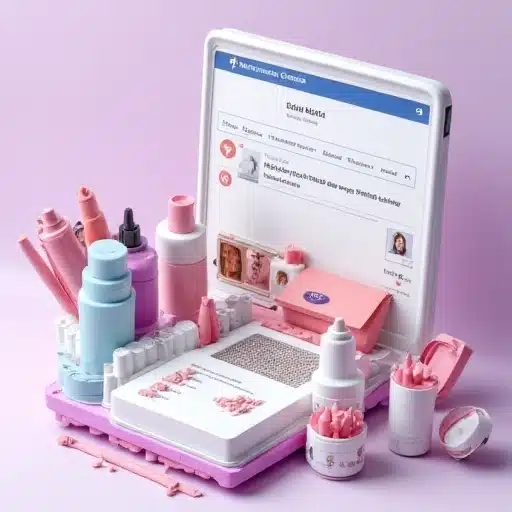
How To Sell Cosmetics On Facebook?
This article provides a comprehensive guide on how to effectively sell beauty products online using Facebook.
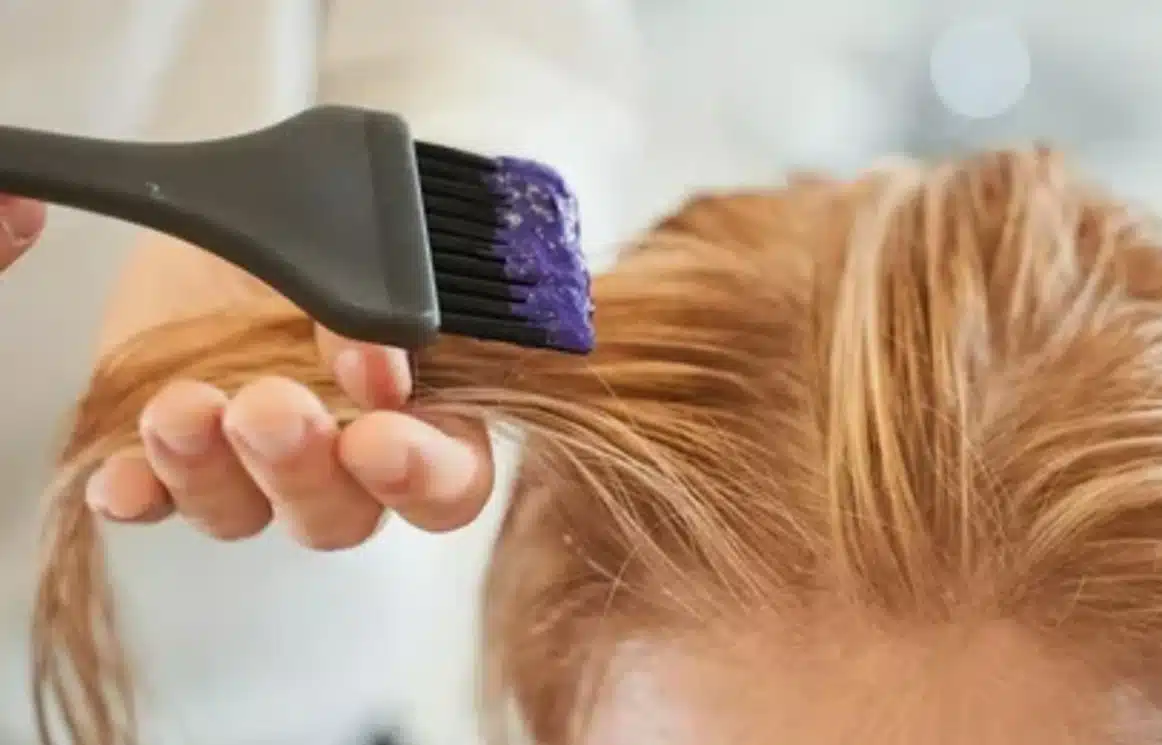
How Damaging Is Permanent Hair Dye?
Curious about how much permanent hair dye can affect the health of your hair?

What Does Hair Removal Spray Do?
Ever wondered how quickly hair removal spray works and if it’s the right method for you?

How Many Beauty Salons Offer Hair Coloring Services
Beauty salons have long been a go-to destination for individuals looking to enhance their appearance through various cosmetic treatments.
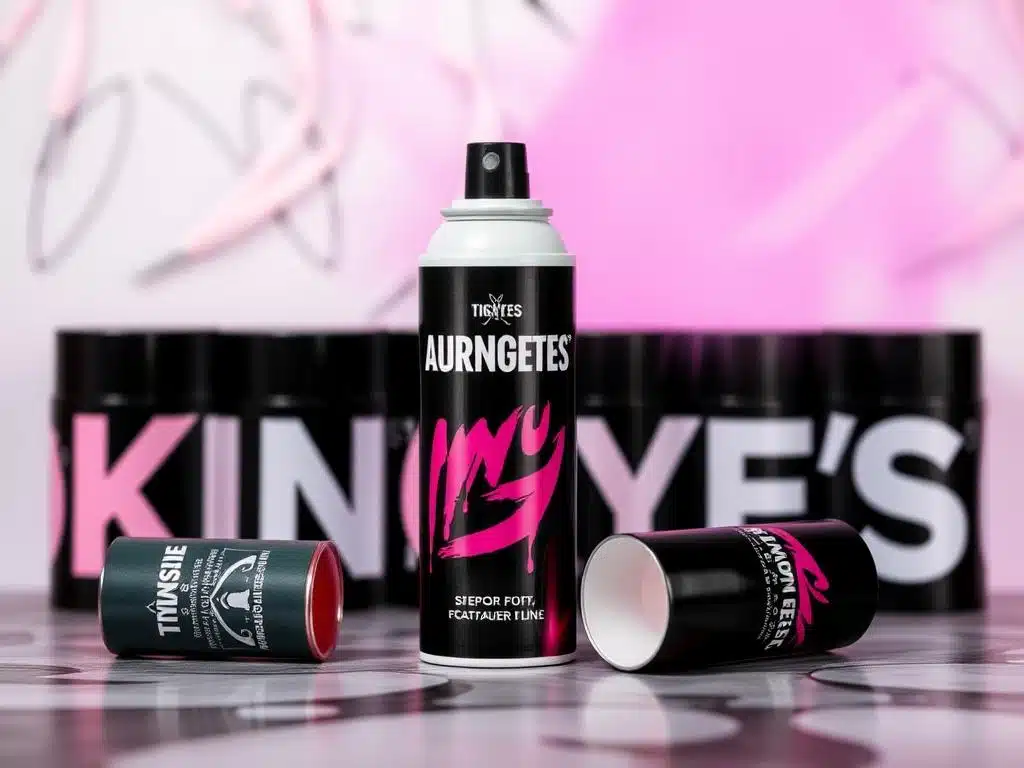
How To Sell Cosmetics On Tokopedia?
Indonesia, with its massive population and rapidly growing digital economy, presents a lucrative opportunity for e-commerce businesses.
- +86 151 1839 7303
- [email protected]
- Mon-Sun 07:00-23:00
Tags

How to Choose a Reliable Cosmetic OEM Manufacturer in China?
How to Pick a Good Makeup Maker in China: A Guide for You.
You possess a concept.
A new face cream. A new hair spray. A new nail color.
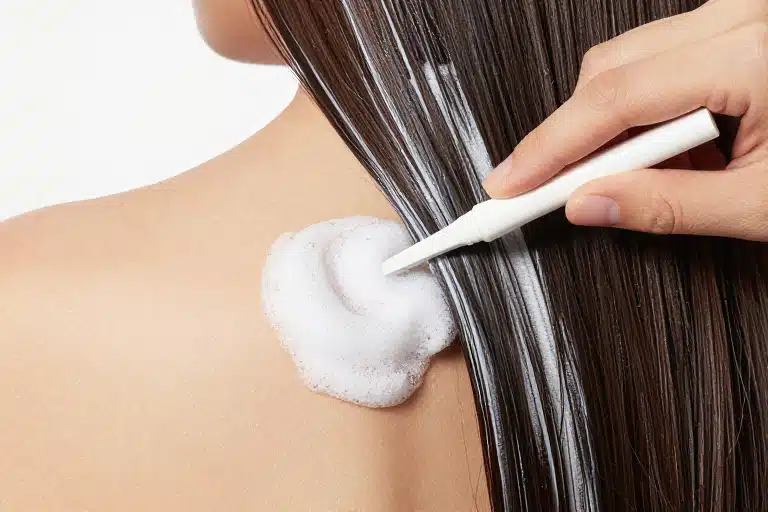
How to Get Hair Dye Off Skin: The Only Guide You Need
Picture this.
You just dyed your hair. You used a new color. It looks great. Your hair shines. You feel happy. You feel like a new person.

How Often Should You Wash Your Hair? The Ultimate Guide
The alarm rings.
You wake up. You stretch. You walk to the mirror.
You look at your hair.

